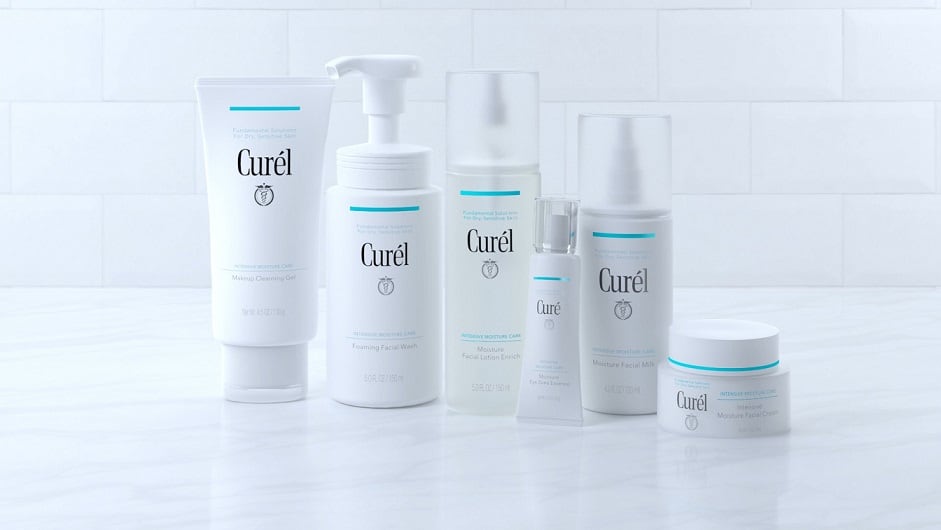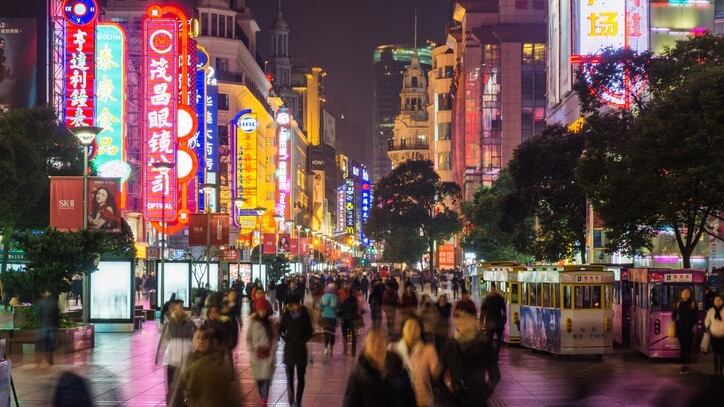1 – Super hydrator: Kao develops new formulation that targets rough and dry skin
Kao Corporation has developed a novel formulation which it claims can smooth away roughness caused by dry skin.
Developed by the Japanese firm’s Skin Care Laboratory, Material Science Laboratory, and Analytical Science Laboratory, the formulation is a combination of ‘large water-content alpha-gel’ and a OXP-SI polymer.
The micro-scaling problem
The combined formula was found to be absorbed into regions with micro-scaling. According to Kao, micro-scaling is a “condition in which the horny layer skin is thinly exfoliated in pieces”.
According to a survey conducted by Kao, an increasingly large number of Japanese women now suffer from dry skin. Among them, more than 90% were found to have micro-scaling on the skin surface.
Typically, corneocytes on the surface of healthy smooth skin show moderate adherence to each other and form a well-ordered structure. Micro-scaling occurs when skin is rough or damaged, making the skin susceptible to external factors.
2 – Effective and efficient AI: SOFINA iP ‘helps consumers save time’ with two-step serum system
SOFINA iP, a skin care brand under Kao Corporation, is scheduled to launch AI-based skin analysis service and ‘double serum system’ to cater to its time-poor consumers.
According to Kao’s consumer research, working women “will go to any length to achieve their goals quickly and efficiently” and are looking for beauty products that are aligned with this.
Hada ID is a digital service hosted on LINE, a mobile messaging application and uses Artificial Intelligence (AI) to analyse uploaded selfies and evaluate skin condition in real time.
The digital service was developed to be a toolkit to help beauty consumers maintain their skin and allow the brand to offer personalised skin care consultation 24/7.
This is especially important for consumers who experience fluctuating skin conditions, said the company.
3 – SUQQU launches on Tmall Global to reach Chinese beauty consumers and boost international sales
Luxury Japanese beauty brand SUQQU is stepping up its international presence by launching its flagship on Tmall Global capitalise on the demand from Chinese beauty consumers.
SUQQU is a beauty brand under Équipe, a member of the Kanebo Cosmetics family. Expanding into China via the country’s largest cross-border e-commerce platform is part of the firm’s strategy to boost its international sales.
“The new SUQQU online space marks a full-scale launch of cross-border e-commerce operations to be staged in step with the strong growth in domestic inbound demand for SUQQU products. Beyond Équipe’s current business operations in five countries and regions, the company will be scaling up international sales by establishing its first official sales channels in mainland China,” said the company in a statement.
SUQQU’s Tmall entry follows the launch of its Weibo social media account in 2017, when the company began to notice the rapid increase of inbound demand from Chinese tourists in Japan
4 – Dior collaborates with leading Japanese lab to study the mechanism of skin metabolism
The research arm of LVMH is collaborating with the Centre for iPS Cell Research and Application of Kyoto University (CiRA) to study the mechanism of skin metabolism for Parfums Christian Dior.
The aim of the joint project is to explore how oxidative metabolism affects skin keratinocyte self-renewal or differentiation capabilities.
“The effects of age on mitochondrial status, skin regeneration and differentiation will be investigated with the hope of contributing to major therapeutic discoveries in the skin and cutaneous rejuvenation,” said CiRA in a press statement.
Under the direction of Nobel Prize laureate Shinya Yamanaka, CiRA is a leading centre for induced pluripotent stem cell research.
According to CiRA, iPS cells are cells generated by introducing a small number of factors into body cells such as skin cells and blood cells.
5 – Kao revamps est in response to the growing demand of premium skin care in Asia
Personal care conglomerate Kao is relaunching the est brand with “high added value” skin care products to tap into the growing demand for prestige beauty in Asia.
By repositioning est as part of its premium beauty portfolio, Kao hopes to strengthen its position in the global cosmetics market.
The company has observed that more beauty products released on the Japanese skin care market are being positioned as premium products. Such products typically cost more than JPY10,000 ($94) and are emerging in the department store segment in particular.
A survey by Kao has shown a growing desire among consumers to spend on beauty products and beauty treatments, not just in Japan but in other parts of Asia like China and Singapore.
The Japanese company believes this consumption upgrade in beauty will continue to drive the growth of the cosmetics market in APAC region.





